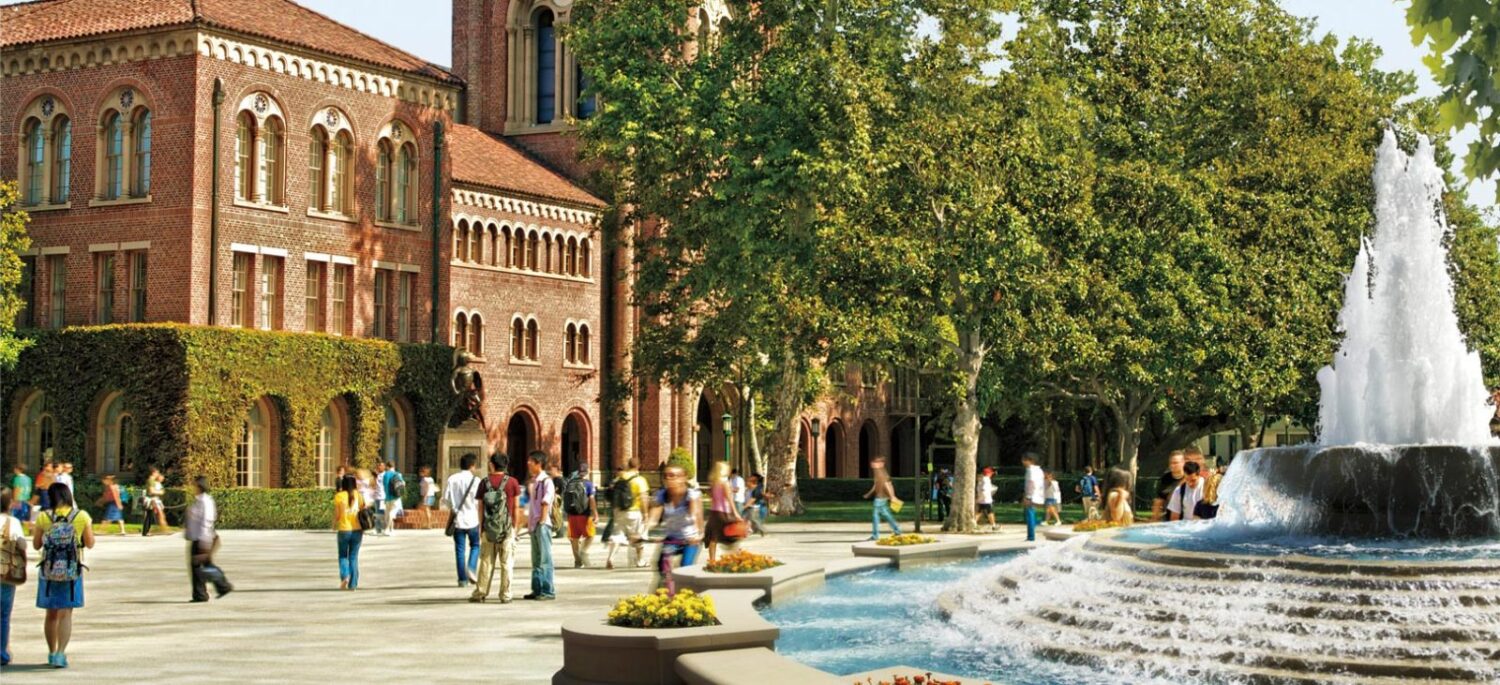The University of Southern California has become California’s first member of the Age-Friendly University Global Network, an international group of higher education institutions dedicated to addressing the needs of older adults and focusing on the challenges and opportunities presented by a rapidly aging population.
“One of USC’s core purposes is to serve as a gateway to opportunity for people of various backgrounds, and that includes those at every stage of life,” said USC Provost and Senior Vice President for Academic Affairs Michael Quick. “Welcoming people of all ages into the university community and fostering their success helps us to create a community of diverse viewpoints, address our biggest challenges, develop new leaders in every generation, and move society forward.”
USC strongly supports research and service regarding aging issues. In 2016, the university joined forces with the City and County of Los Angeles, AARP, the Milken Institute Center for the Future of Aging, and UCLA to announce the launch of Purposeful Aging Los Angeles, an initiative to make the Los Angeles region the most age-friendly in the world. In 2017, the university launched its Ensuring Lifespan Health initiative to promote scholarship on health and well-being across the lifespan.
USC is the home of the USC Leonard Davis School of Gerontology, the oldest and largest school of gerontology in the world, and the university is rightly using its unique expertise in aging to address some of society’s most pressing challenges, said USC Leonard Davis School Dean Pinchas Cohen.
“As the world’s population continues to rapidly age, our researchers are not only tackling the biggest age-related challenges in health care but also the economic and social issues and opportunities that come with longer average lifespans,” Cohen said. “The USC Leonard Davis School is proud to be part of what makes USC a truly age-savvy and age-friendly university.”
The Age-Friendly University Initiative was launched in 2012 by Irish Taoiseach (Prime Minister) Enda Kenny and Dublin City University President and Professor Brian MacCraith. DCU leads the initiative with partner institutions in the U.S., U.K., Canada, and Ireland.
“As Age-Friendly Universities, our shared challenge is to promote an inclusive approach to healthy and active aging through our research, through enhanced learning opportunities for people across generations, and through innovations that address specific issues affecting older adults,” MacCraith wrote in the letter welcoming USC to the network. “The Ten Principles of an Age-Friendly University provide the framework to harness opportunities and address the challenges of aging by leveraging the broad range of assets of the higher education sector. The University of Southern California’s expertise in gerontology will bring an added richness to the membership.”
In becoming an Age-Friendly University, USC officially endorses 10 principles that provide guidance for evaluating the university’s age-friendly programs and policies and identifying additional opportunities for serving people of all ages:
- To encourage the participation of older adults in all the core activities of the university, including educational and research programs.
- To promote personal and career development in the second half of life and to support those who wish to pursue second careers.
- To recognize the range of educational needs of older adults (from those who were early school-leavers through to those who wish to pursue master’s or PhD qualifications).
- To promote intergenerational learning to facilitate the reciprocal sharing of expertise between learners of all ages.
- To widen access to online educational opportunities for older adults to ensure a diversity of routes to participation.
- To ensure that the university’s research agenda is informed by the needs of an aging society and to promote public discourse on how higher education can better respond to the varied interests and needs of older adults.
- To increase the understanding of students of the longevity dividend and the increasing complexity and richness that aging brings to our society.
- To enhance access for older adults to the university’s range of health and wellness programs and its arts and cultural activities.
- To engage actively with the university’s own retired community.
- To ensure regular dialogue with organizations representing the interests of the aging population.
“USC’s commitment to the Age-Friendly University Network is so important on the global stage because of our research, teaching, and professional training in the biological and psychosocial aspects of aging and lifespan health,” said USC Leonard Davis Instructional Assistant Professor Caroline Cicero. “However, our dedication to the 10 principles of Network membership also allows us to consider place-based, environmental, and policy implications of incorporating our academic work into the city in which we live. Interdisciplinary teams of faculty and students are working together to evaluate USC’s opportunities for addressing the needs of our neighbors in Los Angeles as they age, in addition to those in our Trojan network all over the country and world.”





